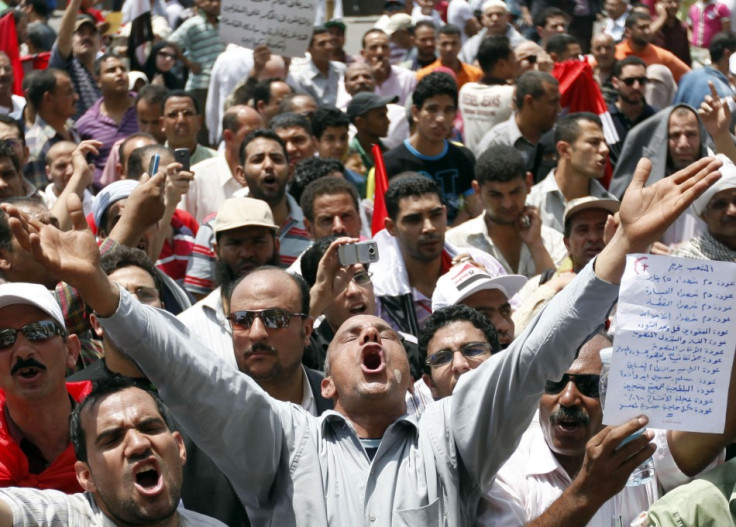Is Egypt's Second Revolution Underway?

Thousands converged onto Cairo's Tahrir Square on Friday ahead of mass rallies planned nationwide to push the ruling military council to speed up the pace of reform, an AFP correspondent said.
Dozens of tents were pitched in the middle of the square, which has become the symbol of the revolution that toppled President Hosni Mubarak in February, in which 846 civilians were killed.
The Egyptian people have grown increasingly critical of the Interim Military Council and protests were organised throughout the week, leading to violent confrontations between the council's forces and the protestors.
As popular discontent is strong, officials say that the security forces will watch the rally from a distance to avoid possible clashes.
"Police and army officers will be stationed in the side streets, but there will not be any security presence on Tahrir Square," a security official told AFP.
Fearing that the presence of the security forces could only lead to greater tensions between the citizens and the authorities, the interior ministry, in coordination with the army, has decided to not to deploy the forces in the square officials added.
Pro-democracy youth groups who called for the protest "will be in charge of security at the entrances to the square," the AFP also reported.
On Wednesday, the government urged all those taking part in the demonstration to "maintain the peaceful nature of the protest" warning against "plots aiming to incite chaos in order to tarnish the country's image."
As protesters are expected to take to the streets after Muslim noon prayers key demands include the end to military trials of civilians, the sacking and trying of police officers accused of killing protesters, and the thorough and transparent trials of former regime officials.
Islamist movements and political forces have also joined forces to demand justice against police and officials linked to Hosni Mubarak and in a rare show of unity, Egypt's largest political Islamist movement, the Muslim Brotherhood, will join a vast array of liberal, leftist and secular political forces, including youth representatives from this year's anti-Mubarak uprising.
They will demand that police officers and former regime officials are finally held accountable and that the army's grip over the justice system comes to an end.
While the largest anti-government protests are located in Cairo and around Tahrir Square, the rest of the country is also critical of the Tantawi-led government and in the last ten days, various protests have also taken place in Suez.
On Wednesday, armed security forces clashed with civilians, after several police officers accused of murdering protesters during the toppling of former president Hosni Mubarak earlier this year were released on bail.
"The demands of the revolution have not changed since day one," declared the 25th January Revolution Youth Coalition in an online statement calling on Egyptians to join Friday's demonstration. "It was not just about toppling the old regime but about building a state where people can have freedom, dignity, rule of law and social justice."
The Muslim Brotherhood initially threatened it would boycott the rally due to disagreements with political rivals over whether a new constitution should be written before or after parliamentary elections, but finally relinquished after it realised that to maintain its credibility it needed to support and bolster the protests.
Commenting on the situation, Alaa al-Aswany a prominent Egyptian writer, wrote in a newspaper column this week "The problem is that the revolution has ousted President Mubarak but not his regime,"
"The Egyptian revolution is now going through a critical moment, a real fork in the road. It can either win or accomplish its goals or (heaven forbid), it can also lose, leaving the old regime to return in a slightly different form.
"This is why the demonstrations are important... to correct what went wrong with the revolution ... We will go to the square ready to pay the price of freedom. We will be like we were during the revolution, ready to die at any moment."
© Copyright IBTimes 2024. All rights reserved.





